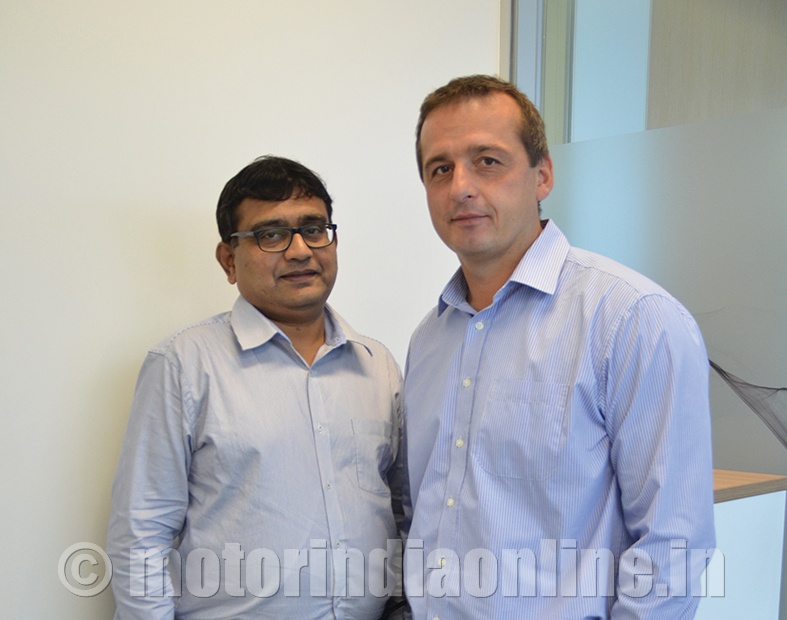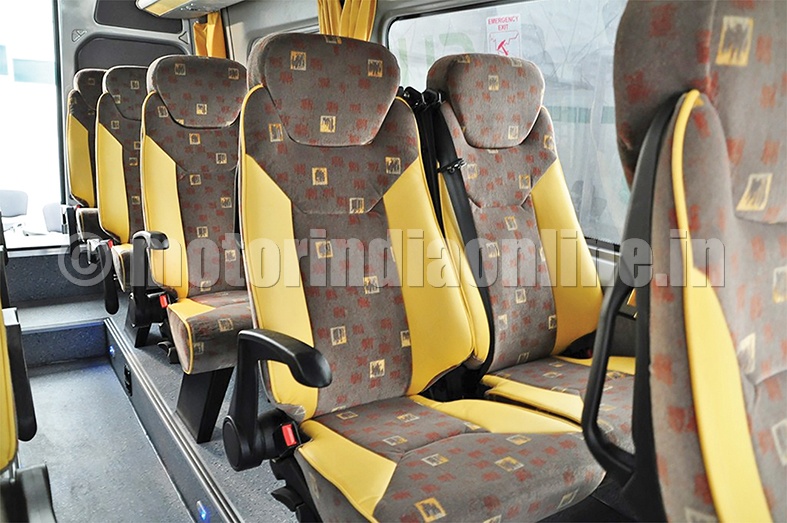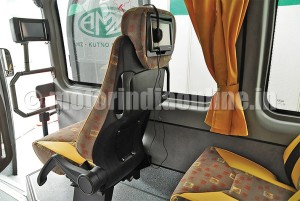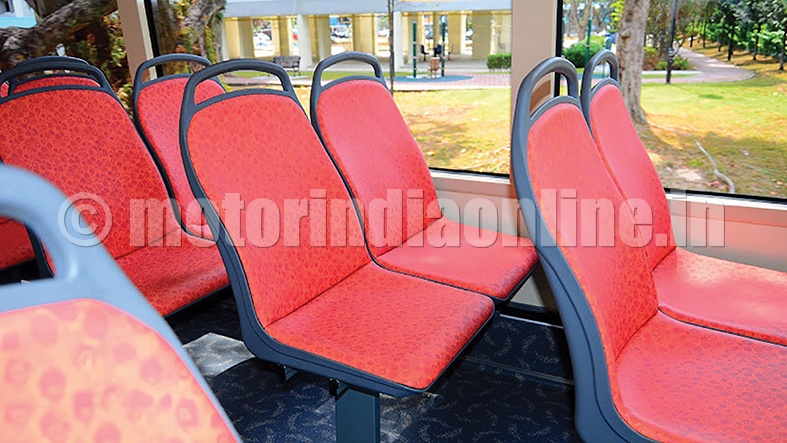Ster, the Polish manufacturer of world-class seats for inter-city coaches, buses, mini-buses, trams and special vehicles, has signalled its plans for the Indian market with the formation of Ster India Private Ltd., a 100 per cent subsidiary of Ster Sp. Z o.o. of Poland. The Indian company, formally set up in June, will have its production facility up and running by January next. The Indian outfit will be Ster’s only fully-owned subsidiary outside Poland, which indicates the importance the company attaches to the Indian market.

While Ster has manufacturing footprint in the US and China, set up in co-operation with its respective joint venture partners, the Indian facility will be a full-fledged establishment completely owned by the company. Ster is currently on the look-out for a suitable location and has zeroed in on a few options in South India. “We have identified a few locations in and around Chennai for our manufacturing plant and will be finalizing one of them soon. In terms of investments, it will be a large-scale, medium-sized facility and will start commercial production by January 2016. We are looking to set up a comprehensive unit capable of performing the complete range of processes, right from metal foaming and plastic injection up to rolling out finished seats”, says Mr. N. Vaideshwaran, in an exclusive interview with MOTORINDIA, his first media interaction as Country Manager of Ster India Private Ltd.
Customized solutions
Established in 1993, Ster has rapidly scaled the peak in the global bus and coach seats arena by becoming a preferred supplier of seating systems to major European bus and coach manufacturers like Scania, Volvo, Daimler, Iveco and MAN, among others. The seat maker, with its mother plant at Szamotuly, Poland, produces all types of seat elements like plastic, metal corpus, plastic inserts, foam cushion, upholstery, etc., with the latest knowledge in ergonomics and design, to offer an optimum blend of high comfort and safety for passengers.
Ster holds close to 90 per cent market share in the city bus segment (urban seats) in Central Europe and also has good presence in other segments in the region. The Polish seat specialist is known for its customized solutions with light-weighting being one of its key USPs over competitors.
Mr. Piotr Nowak, Business Development Manager, Ster Sp. Z o.o., explains: “We are best at urban seats and are leaders in the segment in Europe. We initially started with standard seats and then moved to new generation seats when our customers approached us for unique solutions and wanted individualization of seats. The OEMs wanted their seats to be unique, which is how we were able to differentiate ourselves from other seat suppliers. We have one of the lightest seats in the market, and this gives a huge advantage in terms of better fuel economy, especially in hybrid and electric vehicles. We can reduce over 100 kg only by changing the seats and some construction techniques in the bus interiors.”
Long-term strategy
Ster’s initial focus in India will be on seats for city buses, while the other segments, including inter-city coach, school and staff bus, Defence vehicles and Railways, are part of its long-term plans. The company is already in advanced discussions with major bus OEMs in India, both home-grown ones and multinationals, and will be supplying demo seats to them in the near future. “We are in talks with all major bus OEMs, including Volvo, Scania, Tata Motors and Ashok Leyland, and will be delivering demo seats to them soon. We are also looking at the refurbishment market and plan to start with a list of 50 potential customers which would include some of the large bus body builders and private fleet operators in India”, adds Mr. Vaideshwaran.
Ster believes its superior product features and advanced seating technology would enable it to make inroads into, and establish strong presence in the Indian market. The company is keen on delivering tailor-made solutions to meet customer requirements when it comes to quality, safety, design and durability, in addition to special ‘light-weight’ touch.
“We will deliver completely different products and offer a lot of variety for customers in the Indian market which is currently dominated by two to three players. We want to bring in some energy and enthusiasm in the seating space and introduce products for the future. We will bring in advanced technology in terms of ergonomics, assembly processes, ease of manufacture, engineering solutions, etc., and develop products committed to the Indian market, based on local requirements”, says Mr. Nowak.
He adds: “Our seats are light weight, fire-retardant and highly durable and are completely tested to ensure they do not fail. We make our products using high quality material through advanced processes. So our seats absorb the energy in case of an accident. This is crucial for passenger safety. Our seats help customers save money, thanks to the better fuel efficiency as a result of their lightweight, and also help protect the environment due to reduced emissions.”
Localization and exports
The bus seating market in India being highly cost-competitive, Ster plans to stick to the segment where its core competence lies so that it can deliver the best value proposition to its customers. “We do not want to get into the mass market seat segment which is price-driven. We will compete in a slightly premium segment and want to give good quality seats at a reasonable price and, more importantly, deliver customized solutions for our customers”, shares the Country Manager.
While Ster has charted out its localization strategy to be able to deliver products at the right cost and timelines, it has created a well-defined roadmap for localizing its products. “The localization content in our products will depend on the application segment. We will first start with assembly operations and move in a phased manner towards complete localization. Since 90 per cent of our urban seats are made of plastic, we will localize plastic injection which will make the seats 100 per cent local. While localization is a matter of time, it is also very important that we train our local workforce to handle the processes and technology efficiently”, states Mr. Nowak.
As in the case of many other global, especially European, suppliers, Ster considers India as a perfect location to serve as a global export base and plans to use its Indian facility as a hub for exports to a number of markets across the globe. The company plans to use India’s Free Trade Agreement (FTA) Policy with countries to export its seats in the near future.
“It is not just about the Indian market for us, it is about the entire region in and around India. We will look at exporting our seats from our Indian plant to various countries. India is a safe country to invest in, and most of its people speak English and are well-educated. The Government is supporting growth, and almost all major European OEMs are already in India, which is why we feel India will be a very important market for Ster”, he concludes.


